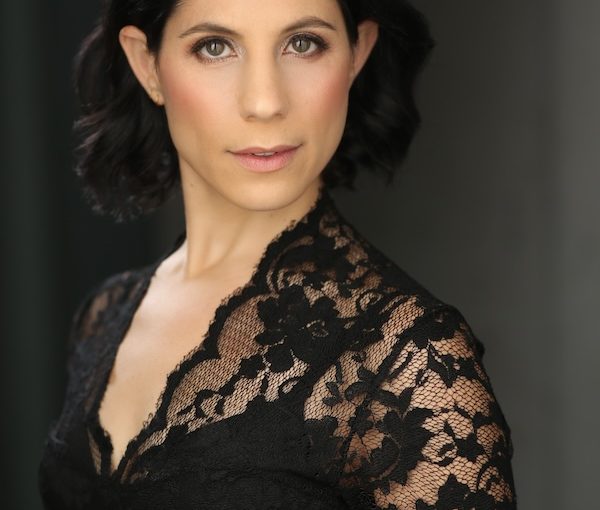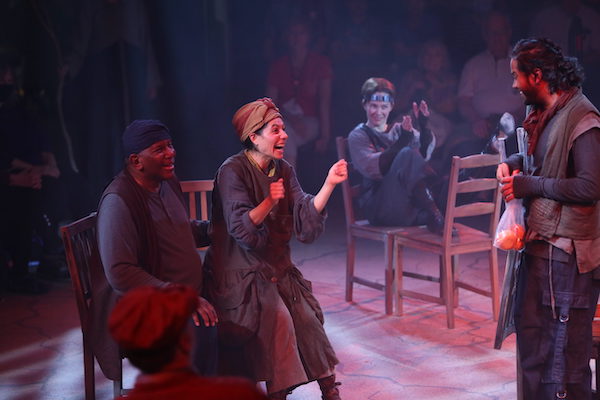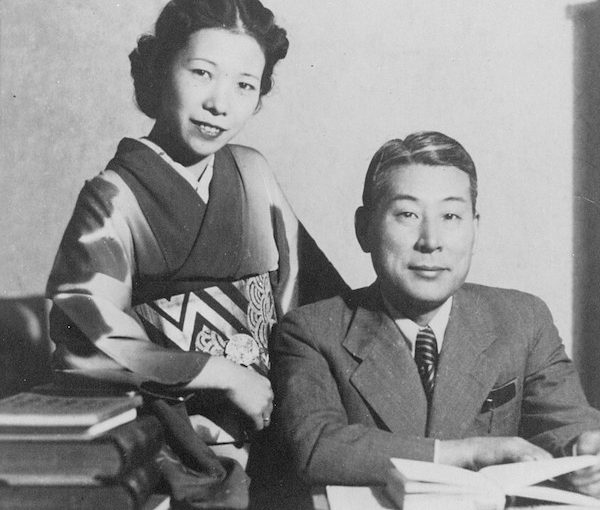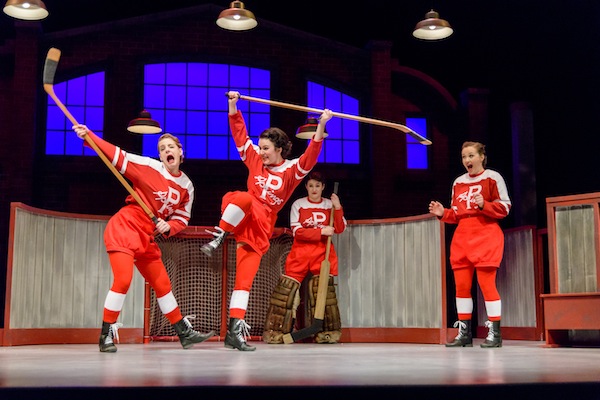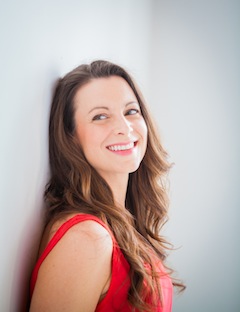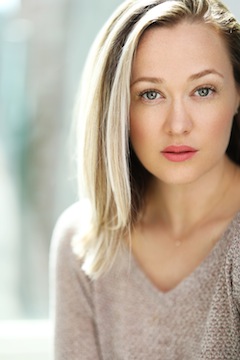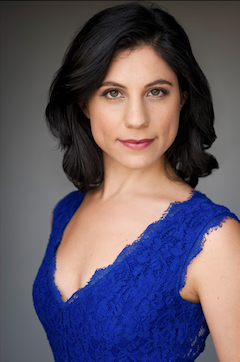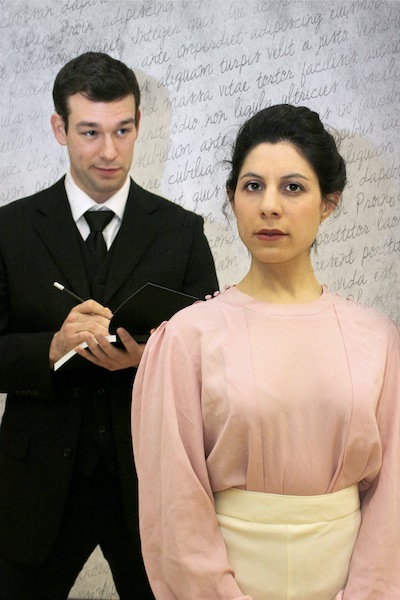“When Mrs. Frederick C. Little’s second son arrived, everybody noticed that he was not much bigger than a mouse. The truth of the matter was, the baby looked very much like a mouse in every way. He was only about two inches high; and he had a mouse’s sharp nose, a mouse’s tail, a mouse’s whiskers, and the pleasant, shy manner of a mouse. Before he was many days old, he was not only looking like a mouse but acting like one, too – wearing a grey hat and carrying a small cane. Mr. and Mrs. Little named him Stuart, and Mr. Little made him a tiny bed out of four clothespins and a cigarette box.”
So begins EB White’s classic children’s story Stuart Little, which was published 75 years ago. To celebrate the anniversary, Carousel Theatre for Young People is presenting the play Stuart Little, which was adapted from White’s book by Joseph Robinette. Jewish community members Advah Soudack and Stephen Aberle are part of the production, directed by Carousel Theatre artistic and managing director Jennica Grienke, at Waterfront Theatre April 23-May 11.
Soudack and Aberle take on multiple roles, including as Stuart’s parents. Castmates Melanie Yeats and Megan Zong also play several parts, while Katrina Teitz plays the title role.
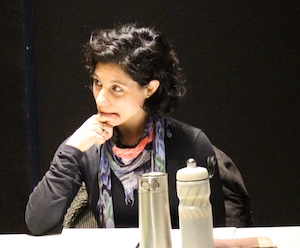
“I was so excited when Jennica called me to offer me the role of Mrs. Little,” Soudack told the Independent. “I knew being part of Stuart Little would be wonderful and the fact that music was being added to the story made me even more jazzed! I love being part of theatre for young audiences, as I think it is so important for children to get the chance to witness and experience live theatre. I have very fond memories from the theatre productions I saw as a child and I know they were part of what inspired me to be an actor myself.”
“I loved the book when I read it as a child, and the approach taken by this production sounded like fun,” said Aberle of why he wanted to be a part of it. “I have a long history with Carousel, going back to the ’80s and including many years both touring to schools throughout BC and performing at the Waterfront, so it’ll be fulfilling to come back and perform here with the company again. I’ve also had the pleasure of working with director Jennica Grienke in the past, and I’m looking forward to renewing that connection. Finally: it’s work! And I love to work.”
Aberle has performed in Carousel’s Scrooge, Macbeth, Dream Castles, The Taming of the Shrew and other productions over the years. Soudack was in The House at Pooh Corner, directed by Kim Selody, in 2020. “Unfortunately, COVID shut us down, so we didn’t get the chance to finish our run with Carousel, nor did we get to remount with Presentation House,” she said.
In preparation for the play, Soudack re-read Stuart Little, a book she read as a child – “and I remember loving it and putting all this effort into a very detailed title page for a book report I wrote … putting a lot of effort into drawing Stuart Little and trying to get him just right.”
Not only did Aberle read the book – “and Charlotte’s Web, another favourite by the same author” – but he read it “a number of times and loved it.”
“It’s interesting,” he said, “to re-read it now with grown-up eyes and see things I’d forgotten: Stuart’s pluck, and his enduring quest to reconnect with his bird-friend Margalo, for example.”
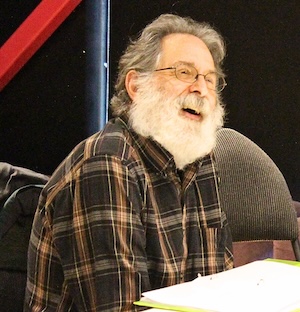
For Aberle, the enduring messages include: “Don’t give up on your dreams – and don’t pout and sulk when things don’t quite go the way you’d planned! Don’t be a pushover, and don’t be a jerk either. It’s OK to be different. It’s OK to love who you love. Everyone – including animals, both human and non-human – matters, deserves respect and has their part to play.”
“I feel that the relevance of the story in today’s world is to not fear differences in one another and to not judge each other by our appearance or stature,” said Soudack.
“The part of the story that I particularly like is how everyone accepts Stuart without judgment or fear,” she said. “His parents love him for who he is and everyone he encounters takes him at face value, shows him respect and treats him like an equal.”
Aberle’s favourite part is Stuart driving off into the north, searching for his love, Margalo.
Rehearsals hadn’t started when the Independent spoke with Aberle and Soudack, so they couldn’t say exactly what playing more than one part would be like, but they explained their process.
“I usually approach playing different roles by working with different character bodies and vocal placement. I like to work off of a first hit that I get from reading the script and various characters and build from there. Some of the roles we get to play are animals, so that will be fun!” said Soudack.
Aberle said “one of the most interesting things about playing several characters is finding the characteristics that distinguish them so that one can step quickly and surely into their shoes – or, in some cases, paws. Vocal qualities, gestures, mannerisms, all that kind of thing.”
Neither actor approaches a performance for younger audiences differently than they do other shows, though both pointed to some differences.
“Children’s theatre is usually quite playful and energetic and requires a different way of storytelling,” said Soudack, “so I keep that all in mind when I start my prep and enter the rehearsal hall.”
“Younger audiences can sometimes be more upfront in their responses, which can teach everyone – actors, directors, playwrights, everyone – a lot,” said Aberle. “Back in the day, when shoemakers moved from laces to Velcro for young people’s footwear, we used to talk about discovering the ‘Velcro moments’ – when the youngest audience members, sitting cross-legged in the front row on the school gym floor, would start to play with the Velcro on their shoes, peeling and re-fastening it, and the sound would fill the air. Usually, these were ‘author’s message’ moments – when the script stopped being the story of the interplay between the characters and started becoming a moral. Young audiences can smell a moral approaching from a mile away, and they have little patience for it. (That’s probably true for older audiences as well, but they’ve grown better at hiding it.)”
For tickets (from $19) to Stuart Little, visit carouseltheatre.ca.

